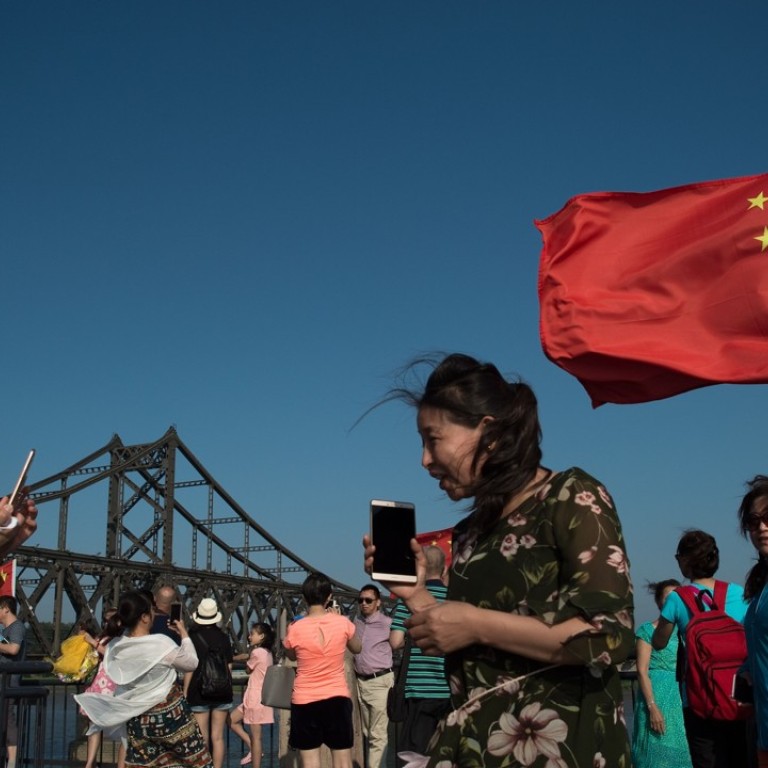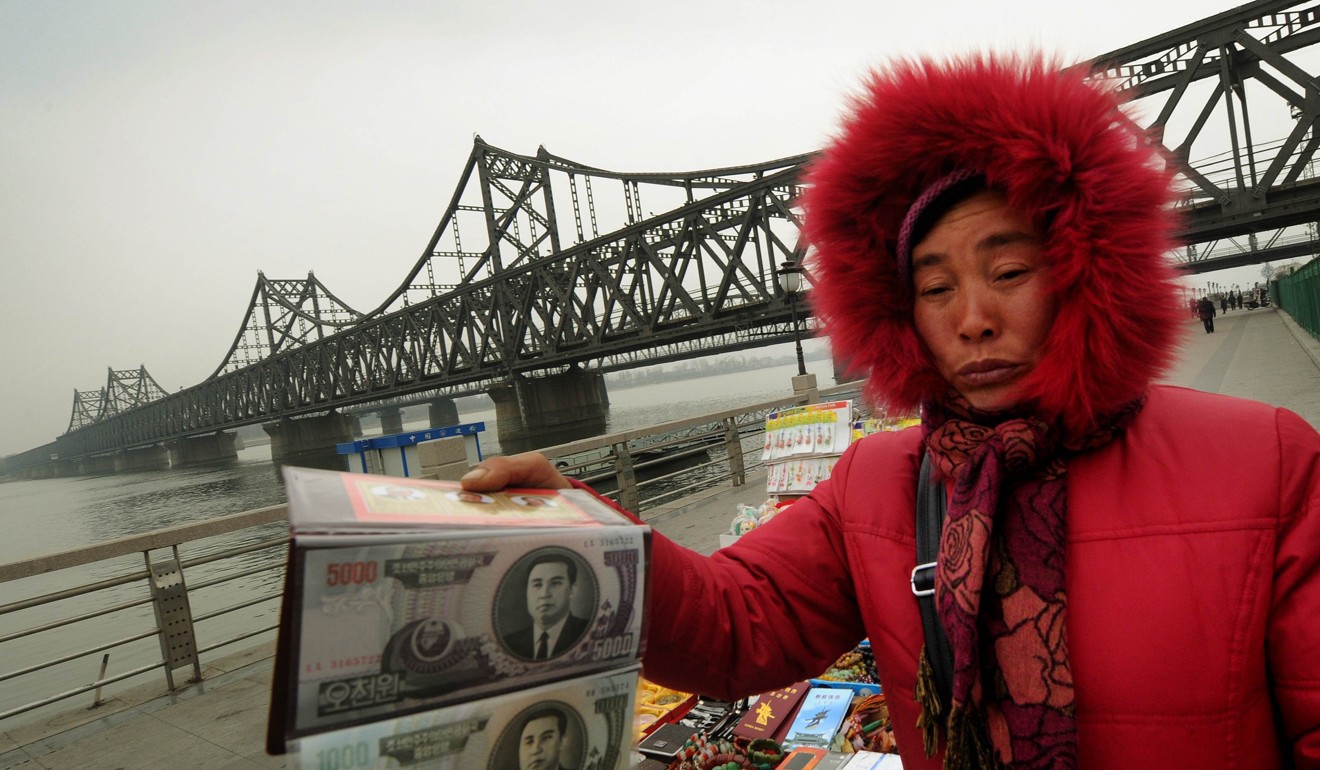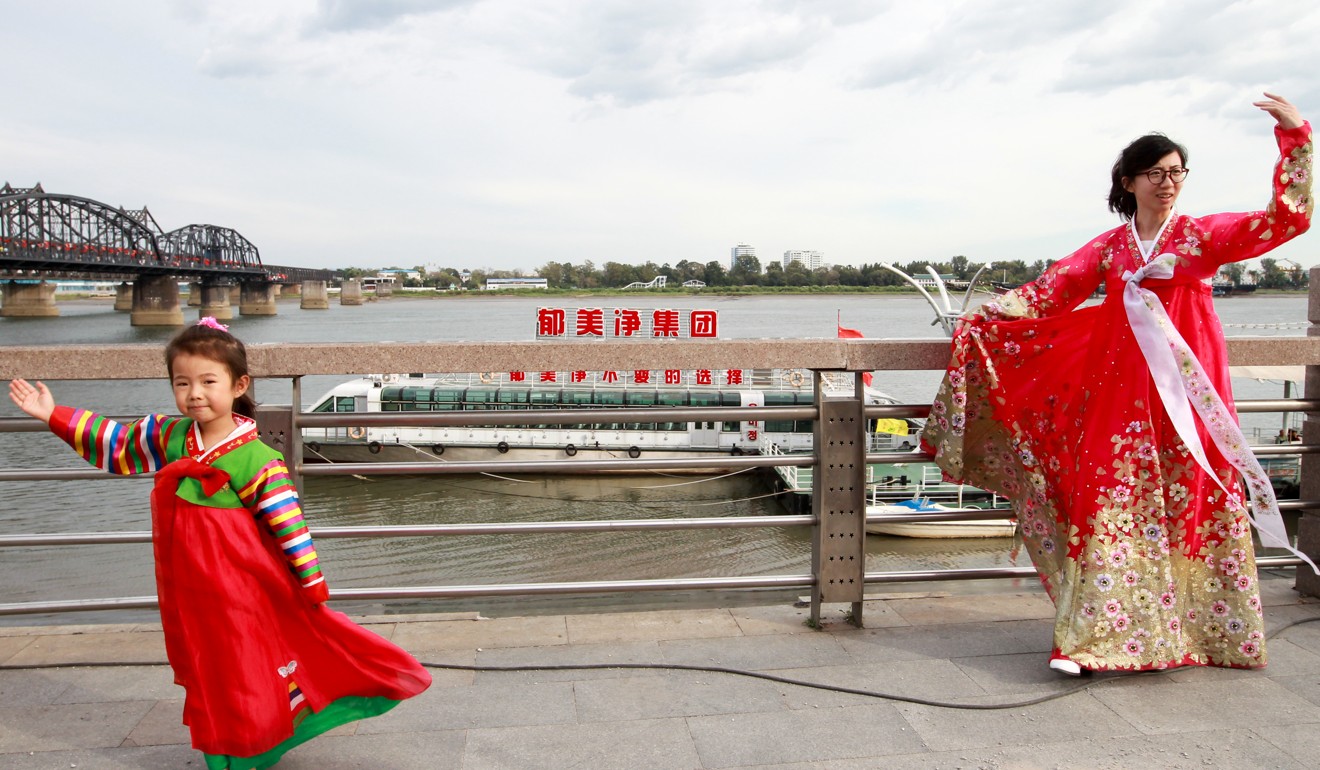
Nuclear fears see more Chinese visitors giving North Korea the cold shoulder this winter
Tour operators halt or cut back on trips to the hermit kingdom as they report lower demand than usual
Chinese tour operators have either halted or cut down on the trips they are offering to North Korea as ongoing political tensions and low tourist numbers take their toll.
Multiple North Korean nuclear and missile tests have prompted the international community to enact new rounds of sanctions banning the country from trading seafood, coal and oil.
Tourism is now one of the few ways the hermit kingdom can attract foreign capital.
There are limited ways to travel into the country as all tourists have to go through a North Korea approved operator – the overwhelming majority of which are China-based.
The most popular travel point for Chinese tourists remains Dandong city, in the northeastern province of Liaoning.
On Friday Chinese officials announced that the main bridge between Dandong and North Korea would be closed for repairs, but insisted it would reopen once they were finished.
Dandong China International Travel Services Company – one of the biggest operators in the city – said it was currently only offering day-return trips to Sinuiju, the city on the other side of the border, despite its website listing tours covering four days.
“There are not enough people to form a tour group to go for a multiple-day trip,” a staff member said. “You can choose those that will take you there for half a day or a full day, but no overnight stays.”

Another Dandong based operator that was listed as a “high quality North Korea tour operator” – Dandong Yalu River Tourism Group Company – yet said it was common to stop tours to North Korea during winter time, and said visits will resume after March.
Two other Dandong tour operators said they were still offering three-day tours that would take tourists to Pyongyang, with one offering tours of up to seven days to those willing to pay extra.
For travel agencies further away from the border, winter has always been low season for North Korea travel but Simon Cockerell, the general manager of Beijing-based Koryo Tours, said this winter’s low season had hit them extra hard.
“It is colder, days are shorter … but [travelling numbers to North Korea] are much lower than winter last year,” said Cockerell, who takes nearly 2,000 Western tourists to North Korea annually.
He added the number expressing an interest in travelling to North Korea “has been the lowest in the past half-year since 2011”.
Yet Cockerell said numbers had been falling since June, following the death of the American student Otto Warmbier who fell into a coma in unexplained circumstances after he had been jailed in North Korea on charges of stealing a political poster.

Cockerell said the “political drama” following North Korea’s nuclear missile tests had prompted a 50 per cent drop in business compared with last winter.
He added that the US ban on American passport holders to travelling to North Korea since August this year had also taken away at least 20 per cent of his customers.
As for Hong Kong’s Glo Travel, which has been running tours to North Korea since 2015, founder Rubio Chan said that lower numbers were expected in winter time.
“ It is very obvious more people ask us about political stability and safety issues over there], but in general we did not see very drastic drop in tour application numbers,” Chan said, adding that most of his customers were from Hong Kong and Taiwan.
Meanwhile, data released on Friday showed that China had imported no iron ore, lead or coal from North Korea in October as sanctions came into force.
Nor did the world’s second-largest economy export any diesel, petrol or corn to North Korea that month.
The data from China’s General Administration of Customs represented the first whole month since the latest UN sanctions came into force on September 5, banning Pyongyang from selling coal, iron ore, lead, lead ore and seafood abroad.

